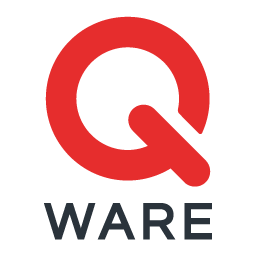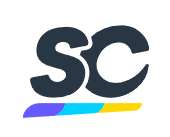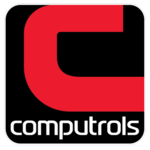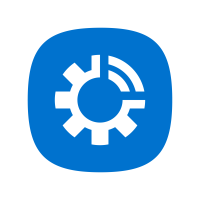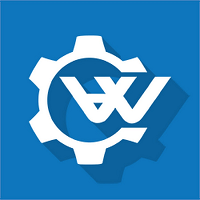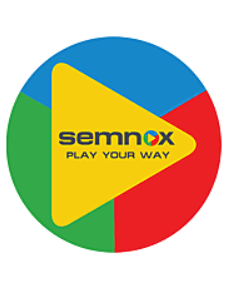Top Facility Management Softwares
Facility Management software is designed to enhance the efficiency and effectiveness of managing physical spaces and assets. These tools assist in streamlining maintenance, optimizing resources, and ensuring compliance with regulations. Facility Management software typically includes features to manage maintenance schedules, track assets, and improve communication among teams. By utilizing data an... Read More
110 companies found
Product Description
simPRO offers a straightforward, cloud-based solution designed specifically for service, project, and maintenance trades. Whether you're in electrical, plumbing, HVAC, or any other type of contracting business, simPRO helps streamline your operations from start to finish. Think of simPRO as your all-in-one platform for managing jobs, schedules, workflows, and teams. You can easily create detaile... Read More
Users
- • No Data
Industries
- • No Data
Market Segment
- • No Data
ServiceChannel
Product Description
ServiceChannel is a software platform designed to help businesses manage their facilities more effectively. Known for its user-friendly interface and practical features, ServiceChannel streamlines the process of maintaining and repairing company properties. Whether you're operating retail stores, restaurants, or other service-oriented businesses, this software makes it easier to handle work orders... Read More
Users
- • No Data
Industries
- • No Data
Market Segment
- • No Data
Q Ware CMMS
Product Description
Q Ware CMMS is a cloud-based software designed to simplify and streamline maintenance management for various organizations. If you’re looking to move away from spreadsheets or cumbersome systems, Q Ware offers an easy-to-use platform that helps keep track of your maintenance tasks, assets, and work orders all in one place. One of the main highlights of Q Ware CMMS is its intuitive interface that ... Read More
Users
- • No Data
Industries
- • No Data
Market Segment
- • No Data
SafetyCulture
Product Description
SafetyCulture is a user-friendly software designed to help businesses improve their safety and quality standards with ease. It works as a digital tool for streamlining inspections, reporting, and team communication. Think of it as a smart assistant for managers, safety officers, and teams who need to keep track of various safety procedures and quality checks. The heart of SafetyCulture is its fle... Read More
Users
- • No Data
Industries
- • No Data
Market Segment
- • No Data
Computrols
Product Description
Computrols is a company dedicated to providing intelligent building automation solutions. Founded with a mission to simplify facility management, they offer user-friendly software designed to efficiently control and monitor building systems like HVAC, lighting, and security. Computrols focuses on creating products that are both easy to use and reliable, ensuring that building operators can manage ... Read More
Users
- • No Data
Industries
- • No Data
Market Segment
- • No Data
OfficeSpace Software
Product Description
OfficeSpace Software offers a practical and intuitive solution for managing your office spaces efficiently. Tailored for businesses looking to optimize their workplace, our platform simplifies the complex task of space management. With a user-friendly interface, OfficeSpace Software enables you to effortlessly manage various aspects of your office layout, including desk assignments, meeting room... Read More
Users
- • No Data
Industries
- • No Data
Market Segment
- • No Data
Infraspeak
Product Description
Infraspeak is a user-friendly software designed to simplify maintenance and facility management for businesses of all sizes. If you struggle to keep up with maintenance schedules, equipment inspections, or work orders, Infraspeak offers a solution that can help you stay organized and efficient. One of the key features of Infraspeak is its easy-to-navigate interface, which makes it accessible eve... Read More
Users
- • No Data
Industries
- • No Data
Market Segment
- • No Data
Product Description
MicroMain is designed to streamline maintenance management for businesses of all sizes, helping them achieve greater efficiency and cost savings. Our software offers a user-friendly platform that simplifies the process of tracking and managing maintenance tasks, work orders, assets, and inventory. With a focus on making it easier for you to keep your facilities and equipment in top condition, Micr... Read More
Users
- • No Data
Industries
- • No Data
Market Segment
- • No Data
Product Description
Hubworks is a user-friendly software designed to help businesses streamline their day-to-day operations and improve overall efficiency. It offers a suite of integrated applications tailored to meet the needs of various industries, including retail, hospitality, and food service. By bringing together essential functions like employee scheduling, time tracking, inventory management, and task managem... Read More
Users
- • No Data
Industries
- • No Data
Market Segment
- • No Data
Product Description
Parafait is an all-in-one software solution designed specifically for amusement parks, family entertainment centers, and other leisure attractions. It's created to make everyday operations smoother and more efficient. From managing ticketing and access to handling cashless payments and customer loyalty programs, Parafait brings all these essential functions under one easy-to-use platform. When it... Read More
Users
- • No Data
Industries
- • No Data
Market Segment
- • No Data
What is Facility Management software?
Facility Management software is a digital solution designed to assist in the management and operation of an organization's physical assets, infrastructure, and resources. This type of software helps streamline various processes related to facility maintenance, asset management, space planning, and more.
Key Functionalities
Facility Management software typically encompasses several key functionalities:
-
Asset Management: This involves tracking and managing an organization's physical assets. It helps in maintaining asset lifecycle information, monitoring asset conditions, and scheduling regular maintenance activities. This ensures that facilities and equipment are kept in optimal working condition.
-
Maintenance Management: This includes tools for scheduling, tracking, and managing both preventive and reactive maintenance tasks. It helps in reducing downtime and extending the life of equipment through timely maintenance.
-
Space Management: Facility Management software aids in planning and optimizing space usage within an organization. It assists in allocating office space, managing occupancy, and planning future space requirements effectively.
-
Work Order Management: This feature allows for the creation, assignment, and tracking of work orders. It ensures that maintenance and service requests are handled efficiently and promptly.
-
Energy Management: The software provides insights into energy consumption patterns and suggests ways to reduce energy costs. It helps in tracking utility usage, identifying inefficiencies, and implementing energy-saving measures.
-
Compliance and Risk Management: Facility Management software assists organizations in meeting regulatory requirements and managing risks. It typically includes tools for safety inspections, audits, and documentation to ensure compliance with industry standards.
Benefits
Facility Management software offers numerous benefits:
-
Efficiency Improvement: Automates repetitive tasks and streamlines various processes, leading to increased operational efficiency.
-
Cost Reduction: Reduces maintenance costs and extends the lifecycle of assets by enabling efficient asset management and maintenance scheduling.
-
Space Optimization: Helps in maximizing the use of available space, thereby reducing real estate costs and improving space utilization.
-
Enhanced Communication: Facilitates better communication among facility management teams, vendors, and stakeholders, improving collaboration and decision-making.
-
Real-time Insights: Provides real-time data and analytics, enabling informed decision-making and proactive problem-solving.
By centralizing and automating various facilities-related tasks, Facility Management software contributes to the overall efficiency and sustainability of an organization's physical assets. It plays a crucial role in strategic planning and operational management, ensuring that all facilities function optimally and align with organizational goals.
How does Facility Management software improve operational efficiency?
Streamlined Maintenance Operations
Facility Management software enhances operational efficiency by streamlining maintenance operations. It enables organizations to schedule preventive maintenance tasks effectively. Automation within the software ensures timely execution, reducing equipment breakdowns and extending asset life. By generating maintenance schedules and alerts, the software aids in minimizing downtime and enhancing the overall productivity of facilities.
Centralized Data Management
A key aspect of Facility Management software is centralized data management. It facilitates the storage, retrieval, and analysis of essential data, such as equipment records, maintenance logs, and vendor contracts. This centralization eliminates the duplication of records and provides a single source of truth. Access to accurate and up-to-date information empowers facility managers to make informed decisions swiftly, further boosting operational efficiency.
Resource Optimization
Facility Management software aids in the optimization of resources by providing insights into asset utilization. It tracks resource allocation and identifies underutilized assets, allowing organizations to reallocate or optimize usage. This ensures resources are used effectively, reducing waste and operational expenses. By analyzing asset performance and utilization data, facilities can plan better and achieve cost-effective operations.
Enhanced Communication and Collaboration
Improved communication and collaboration within teams are facilitated by Facility Management software. It provides platforms for stakeholders to share updates, tasks, and responsibilities seamlessly. Instant notifications and real-time dashboards ensure that everyone is informed about ongoing activities and critical issues. By promoting transparency and coordination, the software minimizes errors and enhances team productivity.
Automated Work Order Management
The automation of work order management is another way Facility Management software enhances efficiency. It allows for easy creation, tracking, and closure of work orders, ensuring tasks are assigned and completed promptly. Automated workflows eliminate manual processes, reduce paperwork, and enhance task visibility. This leads to quicker resolution of maintenance issues, contributing significantly to operational efficiency.
Energy Management
Effective energy management is critical for operational efficiency, and Facility Management software provides tools for monitoring and optimizing energy consumption. It tracks energy usage patterns and helps identify inefficiencies. Facilities can leverage this data to implement energy-saving measures, reducing operational costs and promoting sustainability. By embracing data-driven approaches, facilities achieve both financial and environmental benefits.
Compliance and Risk Management
Facility Management software supports compliance and risk management. It maintains records required for regulatory compliance and audits, aiding in risk mitigation. Automatic notifications of regulatory changes ensure facilities stay compliant. Proactive risk management reduces the likelihood of compliance-related issues that can disrupt operations, leading to a more efficient and smooth-running facility.
Improved Space Utilization
Optimizing space utilization is facilitated by Facility Management software through detailed analysis of floor plans and usage patterns. By understanding space occupancy and usage, facilities can make informed decisions about layout adjustments and space reallocation. This not only maximizes the utility of available space but also reduces overhead costs associated with underutilized areas, thereby contributing to operational efficiency.
What features should you look for in Facility Management software?
When selecting Facility Management software, it is important to choose one that aligns with your organization's specific needs. Below are key features to consider when evaluating Facility Management software.
Work Order Management
This feature is crucial for efficiently tracking, assigning, and monitoring maintenance tasks. It allows you to streamline the management of work orders from initiation through completion, ensuring that maintenance jobs are handled promptly and effectively.
Asset Management
A comprehensive Facility Management software should provide robust asset management capabilities. This includes asset tracking, which enables organizations to monitor the location, condition, and lifecycle of their equipment and facilities. Asset audits and depreciation reports are also significant aspects that can be supported by this feature.
Preventive Maintenance
Preventive maintenance can help reduce downtime and extend the life of your equipment. Facility Management software should have scheduling tools that automatically generate maintenance schedules based on equipment usage or calendar dates. This ensures timely inspections, repairs, and maintenance.
Space and Move Management
Facility Management software should facilitate efficient space utilization and accommodate workplace changes. Space and move management features help track space allocation and support relocation processes, allowing for optimized office layouts and seamless staff transitions.
Vendor Management
For organizations that rely on external service providers, vendor management features are vital. These allow you to oversee contracts, monitor vendor performance, and manage service level agreements efficiently within the Facility Management software.
Inventory Management
Managing consumables and equipment is integral to the upkeep of facilities. Facility Management software with inventory management functionality can assist in tracking inventory levels, managing supply chains, and automating reorders to ensure that essential resources are always available.
Reporting and Analytics
Informed decisions rely on data-driven insights. Reporting and analytics tools within Facility Management software help generate real-time reports on various aspects, such as maintenance costs, facility usage, and efficiency metrics. This supports proactive management and strategic planning.
Compliance and Safety
Ensuring that facilities comply with relevant regulations and safety standards is essential. The Facility Management software should have features that support tracking training, certifications, inspections, and accident prevention measures, helping maintain a safe working environment.
User Access and Permissions
A robust Facility Management software will allow you to customize user access and permissions to ensure that sensitive information is protected. This feature assigns role-based access to ensure users can only access the data relevant to their responsibilities.
Mobile Access
In today’s mobile-first world, having Facility Management software that offers mobile access is crucial. This feature allows maintenance staff and managers to access information, update work orders, and perform tasks on-the-go, enhancing flexibility and responsiveness.
Integration Capabilities
Integration with other platforms and systems is an important feature. The Facility Management software should offer integration capabilities with existing ERP, HR, or accounting systems to streamline processes, enhance data consistency, and reduce duplication efforts.
Selecting a Facility Management software involves ensuring that it encompasses these key features to support efficient facility operations and management. These features facilitate improved accountability, streamlined processes, and proactive maintenance strategies, critical for enhancing operational efficiency.
How Can Facility Management Software Help With Maintenance Scheduling?
Facility Management software offers significant advancements in handling maintenance scheduling for organizations. Key functionalities include streamlining processes, enhancing efficiency, and ensuring systematic approaches to managing facilities. Understanding these elements can help organizations optimize their maintenance activities effectively.
Centralized Information Access
Facility Management software centralizes data, allowing for easy access to maintenance schedules and related information. By having a single repository, facility managers can efficiently track and manage maintenance tasks. This centralized access eliminates the need for disparate systems or spreadsheets, reducing the chances of miscommunication or overlooked tasks.
Automated Scheduling
One of the main advantages of Facility Management software is its ability to automate scheduling processes. Automated scheduling ensures tasks are assigned at the right time without manual intervention. This automation reduces human error, ensures consistent maintenance practices, and enables facility managers to allocate resources effectively. Automated notifications and reminders further reinforce adherence to schedules.
Preventive Maintenance Tracking
Facility Management software supports preventive maintenance by allowing the scheduling of routine check-ups and inspections. Preventive maintenance helps in identifying potential issues before they escalate into costly repairs. By facilitating regular maintenance schedules, Facility Management software contributes to extending the lifespan of facility assets and minimizing unplanned downtimes.
Resource Allocation Optimization
Efficient maintenance scheduling requires optimal resource allocation, which Facility Management software can significantly enhance. The software tracks available resources, including labor and materials, allowing for precise resource management. This optimization ensures that teams are neither overburdened nor idle, making the most out of available resources, thereby reducing waste and enhancing productivity.
Integration with Other Systems
Facility Management software often integrates with other enterprise systems such as Enterprise Resource Planning (ERP) or Computerized Maintenance Management Systems (CMMS). These integrations ensure that maintenance scheduling aligns with broader organizational goals and constraints, such as inventory levels and budget limits.
Real-time Updates and Reporting
Real-time updates and reporting are significant features of Facility Management software. Managers can monitor maintenance activities as they happen and adjust schedules as necessary. This real-time monitoring helps respond promptly to any changes or emergencies and keeps stakeholders informed, ensuring transparency and accountability.
Enhancing Communication and Collaboration
With Facility Management software, communication and collaboration among teams are improved. The software provides platforms for team members to update each other on task progress and any issues encountered. This improved communication reduces delays and ensures that all parties are informed, aligning everyone involved in maintenance activities.
Data-driven Decision Making
Facility Management software provides valuable insights through data analytics about past maintenance activities. These insights support data-driven decision-making, allowing facility managers to learn from past trends and adjust future maintenance schedules accordingly. This analytical approach ensures evidence-based strategies for maintenance planning and execution.
By employing Facility Management software, organizations can efficiently plan and execute maintenance tasks. With improved scheduling processes, organizations can maintain their facilities more effectively, supporting long-term operational success and asset longevity.
Is Facility Management software suitable for small businesses?
Facility Management software is a digital solution designed to streamline the management of physical assets, spaces, and resources. While it has traditionally been associated with large enterprises, small businesses can also benefit significantly from using such software. Here's how:
Efficiency and Productivity Improvements
Small businesses often operate with limited resources and staff. Facility Management software helps streamline operations by automating routine tasks like maintenance scheduling, work order management, and asset tracking. This automation can save time and reduce human error, leading to significant productivity gains.
Cost Management
Effective cost management is crucial for small businesses. Facility Management software can provide detailed insights into operational expenses. By enabling better tracking and analysis of asset performance and maintenance costs, businesses can identify areas where expenses can be minimized. This functionality helps in budget optimization, ensuring small businesses get the most value from their expenditures.
Space Utilization
With limited space, small businesses need to maximize every square foot. Facility Management software offers tools for space planning and utilization, ensuring that the available space is used efficiently. This optimization can lead to better workspace layouts, which supports both productivity and employee satisfaction.
Compliance Assurance
Ensuring compliance with health, safety, and environmental regulations can be challenging but is essential for small businesses to avoid penalties. Facility Management software can help automate compliance checks and documentation. This process not only reduces the burden on staff but also ensures that all necessary regulations are consistently met.
Preventive Maintenance
Breakdowns in equipment or other facilities can be costly. Preventive maintenance, facilitated by Facility Management software, helps avoid such unexpected disruptions. By scheduling regular maintenance and monitoring asset health, small businesses can extend the lifespan of their equipment and reduce downtime.
Scalability
As small businesses grow, their needs evolve. Facility Management software offers scalability, allowing businesses to expand their operations without a corresponding increase in administrative burden. It provides the flexibility to add new modules and features as needed, supporting both current and future growth.
Data-Driven Decision Making
Smaller businesses may not have dedicated teams for data analysis. Facility Management software provides dashboards and reports that consolidate essential data, enabling informed decision-making without requiring in-house analytics expertise. This insight helps drive strategic planning initiatives and long-term business development.
Enhanced Communication and Coordination
Efficient communication and coordination are critical for small teams. Facility Management software often includes communication tools that facilitate better interaction among team members, as well as coordination with external vendors or service providers. This integration ensures a seamless flow of information, reducing misunderstandings and fostering cohesive teamwork.
Overall, while Facility Management software is not limited to large corporations, its benefits can be equally valuable to small businesses. Through improvements in efficiency, cost management, and space utilization, this software category can significantly enhance the operations and growth potential of small enterprises.
How does Facility Management software assist in managing building assets?
Overview
Facility Management software is crucial for overseeing and maintaining an organization's building assets. It plays a significant role in streamlining operations associated with property management, asset maintenance, and optimizing resource allocation. By centralizing information and automating processes, Facility Management software enhances the efficiency of managing various building assets.
Asset Tracking
Facility Management software assists organizations in tracking their building assets effectively. It offers a comprehensive database where all assets, ranging from HVAC systems to light fixtures, can be cataloged. Each asset is assigned a unique identification within the software, enabling facility managers to easily monitor its status, location, and other pertinent details. This systematic tracking aids in minimizing the risk of asset loss or misplacement.
Maintenance Scheduling
One of the core features of Facility Management software is the ability to schedule regular maintenance tasks. Preventive maintenance can be scheduled based on the asset's usage, age, or condition. The software sends alerts to facility managers and technicians, reminding them of upcoming maintenance tasks. By adhering to a routine maintenance schedule, organizations can extend asset lifespans and reduce unexpected breakdowns.
Work Order Management
Facility Management software facilitates efficient work order management. It automates the process of creating, assigning, and tracking work orders for building assets. Facility managers can prioritize tasks, assign them to the appropriate personnel, and track their progress until completion. This streamlined approach reduces response times to maintenance issues, ensuring assets remain functional and safe for use.
Resource Optimization
Resource optimization is another way Facility Management software aids in asset management. By providing insights into asset usage patterns, energy consumption, and maintenance histories, it enables organizations to make informed decisions regarding resource allocation. For example, reallocating assets that are underused, identifying energy-intensive equipment, or determining optimal maintenance intervals can lead to substantial cost savings and enhanced operational efficiency.
Compliance and Documentation
Facility Management software assists in maintaining compliance with relevant regulations and standards. It stores important documentation related to building assets, including warranties, inspection reports, and compliance certifications. This readily accessible data ensures that facilities remain compliant with safety standards, helping organizations avoid potential legal issues or penalties.
Reporting and Analytics
With robust data analytics features, Facility Management software can generate detailed reports on asset performance, maintenance costs, and lifecycle trends. These insights allow facility managers to make data-driven decisions aimed at improving asset performance. Analytical reports can be customized to focus on specific metrics, depending on organizational needs, thus enhancing strategic planning.
Budgeting and Forecasting
Facility Management software aids in budgeting and forecasting related to building assets. By analyzing historical data on maintenance expenditures, replacement costs, and depreciation, facility managers can create accurate budget plans. This foresight enables organizations to allocate financial resources more effectively and plan for future asset-related investments.
Facility Management software is instrumental in managing building assets by offering a structured approach through asset tracking, maintenance scheduling, work order management, and more. Its ability to optimize resources, maintain compliance, provide analytical insights, and aid in budgeting makes it indispensable for efficient facility and asset management.
What are the benefits of using cloud-based Facility Management software?
Cloud-based Facility Management software offers numerous advantages that cater to modern facility management needs. By leveraging the power of the cloud, organizations can significantly enhance their operational efficiency, reduce costs, and improve maintenance strategies.
1. Accessibility and Mobility
One of the most significant benefits of cloud-based Facility Management software is its accessibility. With the cloud, users can access the software from any location with an internet connection. This accessibility ensures that facility managers and staff can stay connected and updated whether they are in the office, at a remote site, or on the go. Mobile compatibility further enhances this capability, allowing the use of smartphones and tablets to manage tasks effectively from anywhere.
2. Real-Time Data and Analytics
Cloud-based solutions provide instant access to real-time data, enabling facility managers to make informed decisions quickly. The ability to analyze real-time data is a powerful tool for optimizing operations. Users can monitor systems, track performance metrics, and predict maintenance needs effectively. With data analytics, it's easier to spot trends and anomalies, leading to proactive maintenance and reduced downtime.
3. Cost Efficiency
Utilizing cloud-based Facility Management software can lead to substantial cost savings. Organizations can avoid upfront investments in hardware and software licenses. Instead, they can benefit from a subscription model that spreads costs over time. Additionally, cloud platforms often include automatic updates and maintenance, eliminating the need for dedicated IT staff to manage on-premises infrastructure.
4. Scalability and Flexibility
Cloud-based Facility Management software is inherently scalable, allowing businesses to adjust their usage based on current needs. Whether an organization is expanding or downsizing, the software can easily accommodate changes without the necessity for significant reconfigurations or additional hardware purchases. This scalability ensures that the solution can grow alongside the organization.
5. Improved Collaboration
The cloud fosters enhanced collaboration among team members and external partners. Facility Management software hosted on the cloud allows multiple users to access and work on the same data set simultaneously. This feature ensures that everyone has access to the most current information and can collaborate in real-time, improving communication and coordination across different departments and stakeholders.
6. Enhanced Security and Compliance
Cloud service providers typically offer robust security measures to protect sensitive facility data. This includes data encryption, frequent backups, and compliance with industry standards and regulations. With cloud-based Facility Management software, organizations can ensure that their data is secure while also meeting relevant compliance requirements seamlessly.
7. Ease of Integration
Cloud-based Facility Management software often supports integration with other cloud applications and systems. This capability allows organizations to unify their technology stack, enhancing overall business efficiency. Seamless integration means that companies can connect their Facility Management software with other platforms such as human resources, accounting, and customer relationship management systems without much hassle.
Overall, cloud-based Facility Management software provides numerous strategic advantages for organizations looking to streamline operations and improve management efficiency while leveraging modern technology.


